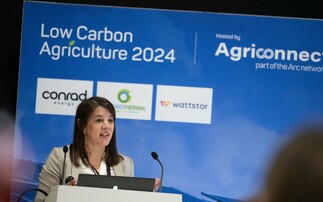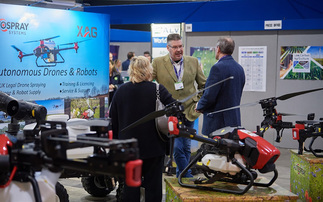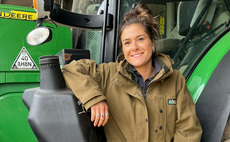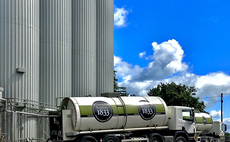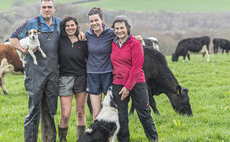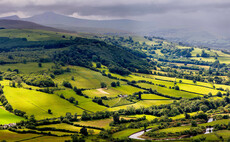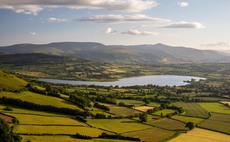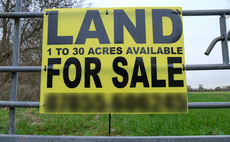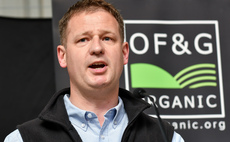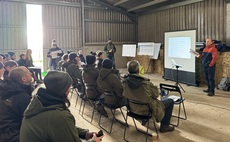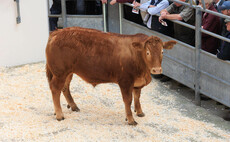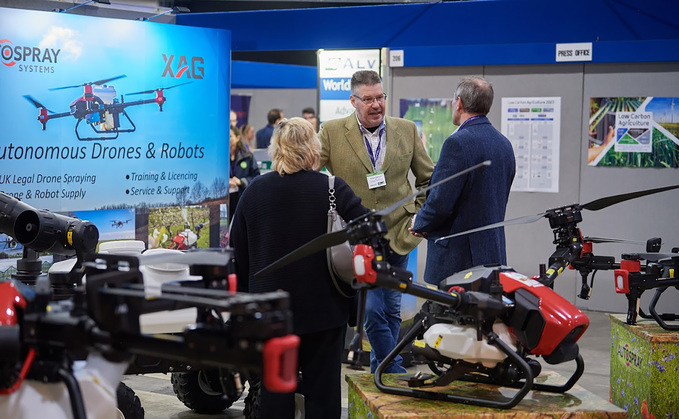
Day one of the two-day (March 6/7), held at the NAEC in Stoneleigh, Warwickshire, heard from a range of high profile speakers including Jack Bobo, founding director of the University of Nottingham's Food Systems Institute; Jonathan Baker, Head of Programme Policy Engagement and Strategy in Defra's Future Farming and Countryside Programme and Charlotte Powell, Head of BioEnergy and Carbon Removals and Innovation Delivery at the Department for Energy Security and Net Zero (DESNZ)
The event is organised by �������� Guardian's parent company, Agriconnect, and supported by the NFU.
Jack Bobo said while collaboration was the only way to ‘achieve a more sustainable planet, it is polarisation that holds us back'.
He said it was incumbent on all stakeholders to work together to deliver on shared aims.
"People believe agriculture is a problem to be solved, rather than seeing agriculture as the solution to our problems," said Mr Bobo, who conceded it was difficult for governments to put strategies in place when stakeholders wanted different outcomes.
"Things are wildly better than they were 30 years ago. They will be wildly better 30 years from now. But how can we get to year 2050 goals by 2030? Things are getting better but not fast enough, so how can we help you to do it better and faster? That is the challenge we have - how can governments, the public and industry accelerate the pace of improvement."
Watch Jack Bobo's podcast:
Highlighting the rollout of Defra's Sustainable Farming Incentive in England, Jonathan Baker pointed to grants recently announced by Prime Minister Rishi Sunak to fund agriculture's transition, including more funding for technology, infrastructure and innovation.
READ NOW: Low Carbon Agriculture Show: 4 things not to miss
He said: "We are supporting the industry to take their own carbon audits and use new technology, for example help reduce methane emissions in livestock through the use of methane-suppressant feed products.
"The Government can and is helping, but this has to be farmer led."
Net zero
Charlotte Powell said a mix of technologies will be required to meet carbon budgets and net zero.
Highlighting the role of biomass, she said reducing the barriers to increasing domestic production of biomass will be important to ensure the UK can secure the supply needed across the economy to support decarbonisation.
She said this was being supported by the £36million Biomass Feedstocks Innovation Programme, which funded innovative ideas that address barriers to UK biomass production.
- More information
The Low Carbon Agriculture Show is dedicated to two days of learning, networking, and exploring the latest sustainable farming practices for farmers, landowners, and industry enthusiasts committed to combating climate change.
Low Carbon Agriculture Show organisers say the event hopes to propel the agricultural industry towards a greener, more resilient future.Cheryl Waterman, LCA/Agriconnect conference producer said: "Crafting the conference programme for the Low Carbon Agriculture Show has been a gratifying experience. We have designed an agenda that empowers farmers to tackle challenges and meet net-zero targets, ensuring a forward-thinking approach."
The event boasts a diverse range of exhibitors, showcasing the latest technologies and solutions in the sustainable farming landscape.
From energy-efficient equipment to innovative agricultural practices, the exhibitors add an extra layer to the immersive experience at the Low Carbon Agriculture Show 2024.








